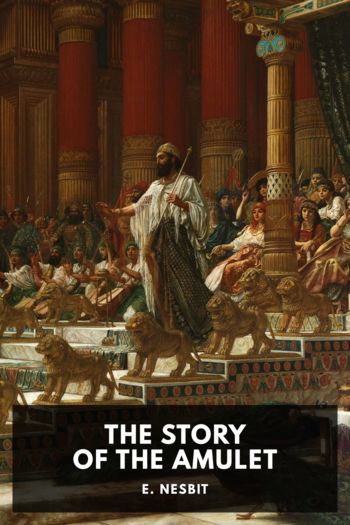How to Catch a Duke, Grace Burrowes [short books to read .txt] 📗

- Author: Grace Burrowes
Book online «How to Catch a Duke, Grace Burrowes [short books to read .txt] 📗». Author Grace Burrowes
Abigail would love to pop in with him and see him consorting with his little spies. “You are no sort of fribble whatsoever.”
“I’m a ducal heir. We apparently have a reputation to uphold as decorative bon vivants. You never did tell me if you’re hungry.”
Abigail was hungry. Starving for the company of a man who chatted in bed, took his time with lovemaking, and quietly supported more charities than any five dukes combined.
“I am a bit peckish,” she said, mostly because Stephen had to be famished. “I would not want to put the staff to any trouble.”
“It’s half day,” he said, sitting up, “and my employees are well compensated for tolerating my eccentricities regarding mealtimes. I also look in on the kitchen unannounced.”
“Eccentric, indeed.”
And so dear. Stephen was the most attentive lady’s maid Abigail had ever encountered, using his pocket comb to tidy her hair and making short work of her ribbons, hooks, and laces. He required no assistance dressing, having developed methods of donning his clothing that let him either sit or use one hand while balancing on sturdy furniture.
All too soon, he was again the natty gent, and Abigail was a lady attired for an outing to the shops. When she would have left the study for the kitchen, Stephen stopped her with a hand on her arm.
“A hug for courage,” he said, drawing her close. “And for gratitude. Thank you, Abigail. I will dream of this interlude when I’m a curmudgeonly old relic, and the memory will make my heart that of a young and happy man.”
She hugged him back, hard, and blinked away foolish tears. All too many of her encounters with Champlain had ended with a quick kiss and him telling her to “tidy up and take care.” He’d disappear for days or weeks, then show up again, all smiles, ready for another quick trip to the nearest hayloft.
And she, being young, stupid, and desperate for a man’s notice, had gone with him willingly.
“Food for the soul having been attended to,” Stephen said, stepping back and taking her hand, “let’s find some food for the body. One doesn’t attempt a mercantile sortie on an empty belly.”
He knew his way around the kitchen, and waved off the single scullery maid on duty. He directed her to take her work into the garden, and she seemed happy enough to gather up her bowl of peas and go.
“That one,” he said, “was plying the horizontal trade until six months ago. You never saw a woman happier to peel potatoes. Ham or beef on your sandwich?”
“Neither. Cheese and butter will do. Do you prefer cider or ale, or should we make a pot of tea?”
“Cider this time of year is a good choice. Were your people the sort to boycott sugar?”
“Absolutely, and I still buy sugar sparingly and only from Indian sources.”
Stephen was at home in this kitchen, knew where the knives and bread loaves were, handled the cheese parer competently, and managed to move about with a cane in one hand and plate in the other.
He brought a tray stacked high with sandwiches to the plank table in the center of the kitchen. “I suspect,” he said, “that reducing English consumption of sugar just allowed more enslaved labor to be devoted to tobacco, rum, and coffee, all of which lend themselves to habitual consumption, and were more impervious to boycotts.”
“Do you hold property in the West Indies, my lord?” Abigail would protest if he did, but would she flee his company and take her chances with Stapleton?
“Certainly not. Jane is a preacher’s daughter. She has strong views on abolition, as do I. Quinn’s favorite political cause is getting young children out of the mines. He labored like a bullock as a boy, and because he was a boy—albeit a large boy—he was paid a pittance compared to what a man was paid for the same work. Pass me that mug.”
Abigail slid a mug of cider to his side of the table. “For what we are about to receive, we are humbly grateful. Amen.” Abigail’s Quaker relatives frowned on recitation of grace as a rote exercise, while Abigail liked the comfort of a simple expression of gratitude.
“Amen,” Stephen murmured, “and for the company in which we receive it too.” He nudged her foot under the table with his boot and saluted with his cider.
She was lost. Utterly, entirely lost. The lovemaking was wonderful, but this casual affection, this friendliness and honest joy in her company…she had been infatuated with Champlain, and with the notion of being in love.
Stephen Wentworth was stealing her heart, and she was helpless to prevent his larceny.
“Stapleton opposes any child labor reforms,” he said, taking a sip. “He and Quinn oppose each other frequently on various committees. If I were a better brother, I’d stand for a seat in the Commons and support Quinn’s issues in the lower house.”
The food was good, hearty and plain. The cider was cold and fresh, and Stephen’s willingness to discuss politics an unexpected treat. Quakers were pacifists, and they did not hold office, but they could be intensely political.
“What stops you from taking a seat in the Commons?” Abigail asked.
He sent her a peevish glance over the rim of his mug. “The actual sitting. The job entails hours and hours of it, far into the night, and my backside honestly can’t tolerate the inactivity. Then there’s standing to make speeches, another activity at which I do not excel—the standing. I can speechify as well as the next man.”
“You could still back a candidate or two, if the right man came along.”
His lashes swept down. “This is good cheese, don’t you think?”
Subtle, that was not. “How many seats do you control?” And, yes, the cheese was wonderful.
“About a dozen, not enough to do any damage, just enough to keep me well





Comments (0)